Early Hearing Detection and Intervention Program (EHDI)
Undetected hearing differences in infants and children are a developmental emergency! Iowa's Early Hearing Detection and Intervention (EHDI) Program works to ensure that all newborns and toddlers with hearing differences are identified as early as possible and provided with timely and appropriate audiological, educational, medical intervention and family support. The EHDI program is dedicated to providing unbiased support to families of children who are diagnosed as deaf or hard of hearing (DHH).
Studies show that children with hearing differences may have delays in speech, language, cognitive development (thinking) and social and emotional development. If identification of hearing differences does not happen until after six months of age, a child's language skills at age three will be about half those of a child with typical hearing.
Given the serious ramifications of late identification of hearing differences, the Iowa legislature passed a law (Iowa Code section 135.131) which requires universal hearing screening of all newborns and infants in Iowa. Additionally, birth facilities, physicians, audiologists and other health care providers are required to report the results of a hearing screen, re-screen or diagnostic assessment for any child under 3 years of age to the Iowa Department of Public Health.
Role of the Pediatrician/Primary Care Provider (PCP)
The pediatrician is responsible for monitoring the general health, development, and well-being of the infant in their care, including birth hearing screening outcomes. The PCP also plays an important role in ensuring follow-up with rescreening and audiologic diagnostic evaluation in a timely manner. To assist PCPs, the national AAP developed several documents that pediatricians may find helpful:
- EHDI Frequently Asked Question (FAQ) Guide -an introductory resource for pediatricians serving families with a child or children who is or are DHH. This resource provides linkages and connections to important resources in states, critical components of working with families, and tips and strategies for billing and coding.
- 1-3-6 Newborn Hearing Screening Checklist - a checklist of what must be done when an infant does not pass their birth screen.
- Bright Futures Implementation Tip Sheet- checklists and screening algorithms for the birth to 6-month period to ensure that screening, surveillance, referral, and intervention can occur at appropriate times for optimal development.
- EHDI Guidelines for Pediatric Medical Home – algorithm to assist medical home in appropriate referrals at a glance.
For all infants suspected or confirmed to be DHH, the PCP must partner with other specialists, particularly the audiologist, otolaryngologist, geneticist/genetics counselor, and early intervention specialist to facilitate coordinated and comprehensive care for the infant and family.
Another great resource for information is the Iowa EHDI program website, contacting the EHDI Coordinator by calling (800) 383-3826 or emailing ccid@idph.iowa.gov.
Regardless of previous hearing-screening outcomes, all infants with or without risk factors for hearing differences should receive ongoing surveillance of communicative development beginning at two months of age during well-child visits in the medical home (AAP Committee, 2017). This recommendation provides an alternative, more inclusive strategy of surveillance of all children within the medical home based on the pediatric periodicity schedule (AAP Committee, 2017). All infants who do not pass the speech-language portion of a developmental screening in the medical home or for whom there is a concern regarding hearing or language should be referred for speech-language evaluation and audiology assessment. Prompt specialty referrals should follow when new or delayed-onset conditions are suspected (Gracey, 2003). Because approximately forty percent of children confirmed as DHH will demonstrate additional conditions or delays such as autism, blindness, learning differences, genetic syndromes, et cetera, health care providers have an important role in confirming that these children are receiving comprehensive services (Roizen et al., 2014).
AAP EHDI Chapter Champion
Each AAP Chapter has identified at least one pediatrician member to serve as the EHDI Chapter Champion. This individual is responsible for leading and responding to health care provider concerns regarding newborn hearing screening and follow-up in the state. They are also involved in working with their state department of health staff and other state government agencies as well as other pediatric health care providers in the state on EHDI programming and activities. Iowa’s AAP EHDI Chapter Champion is Rachana Krishna, MD.
EHDI Resources:

